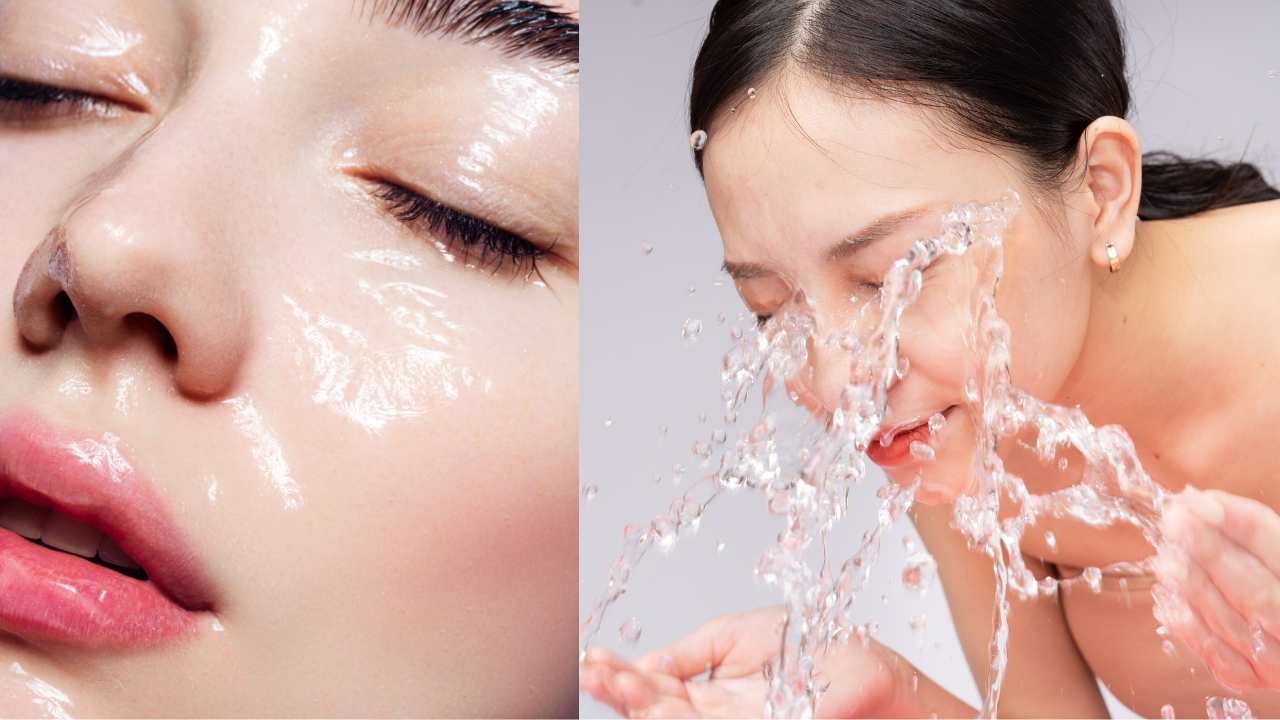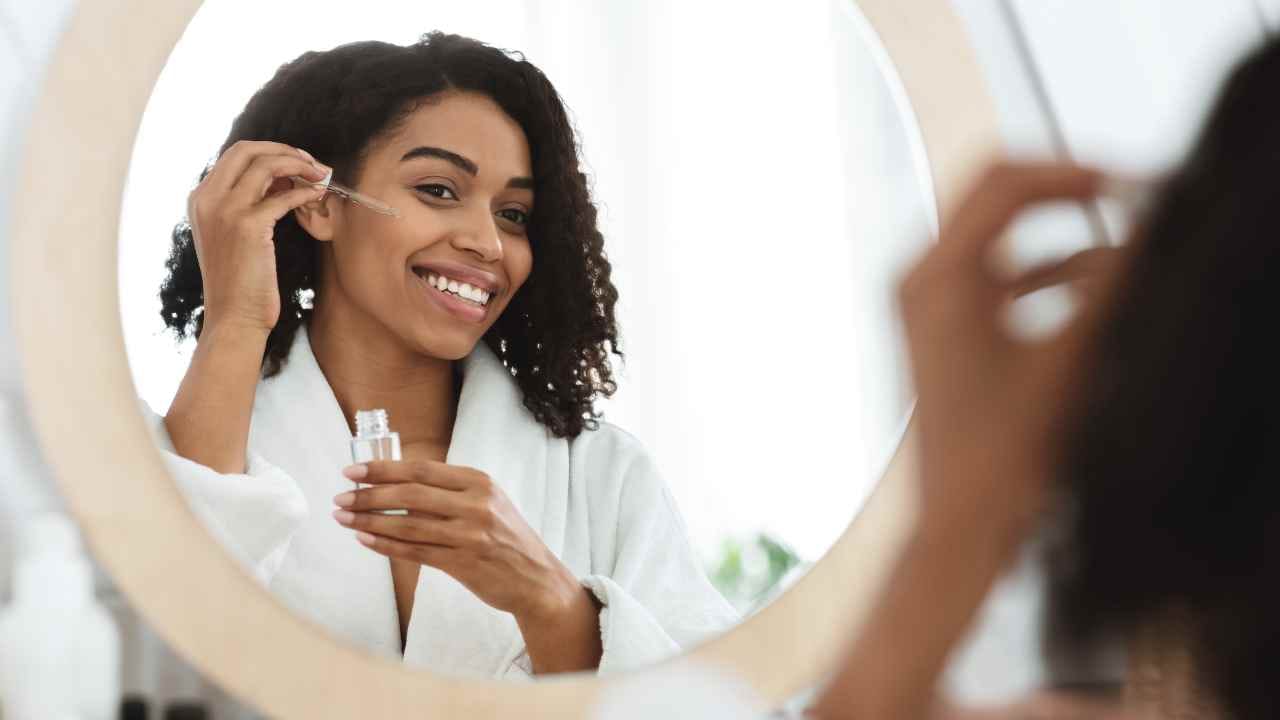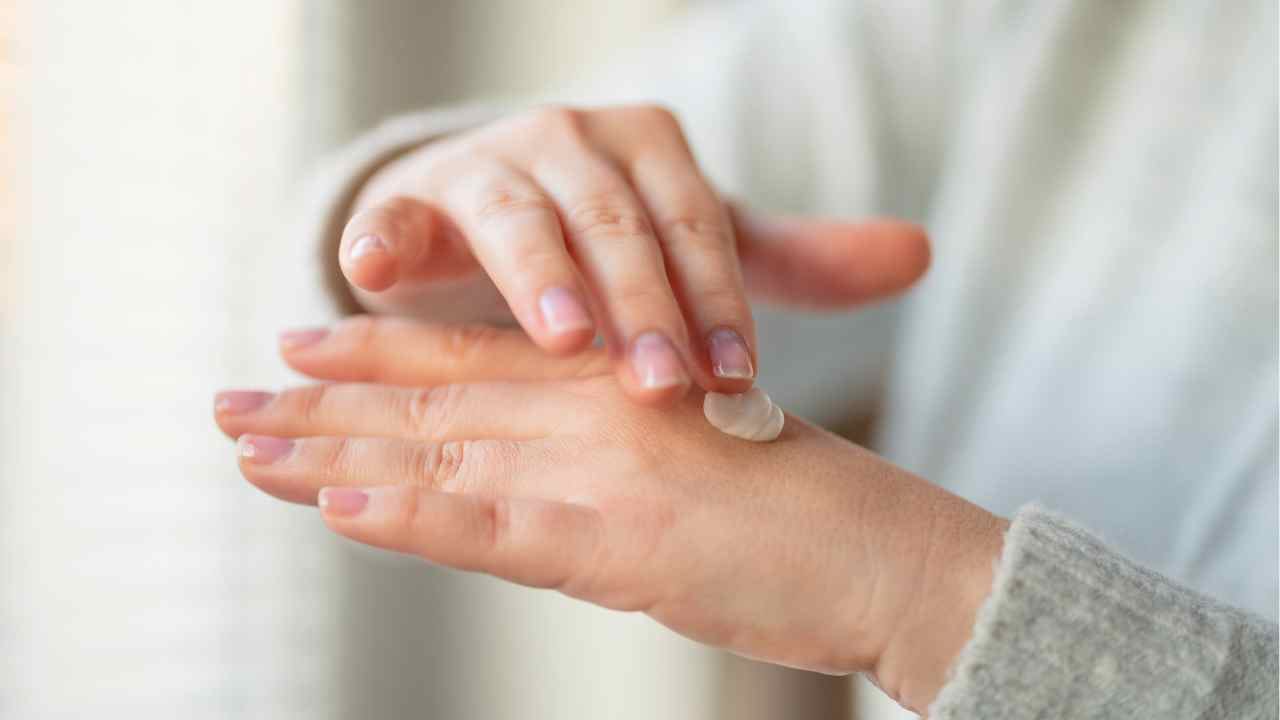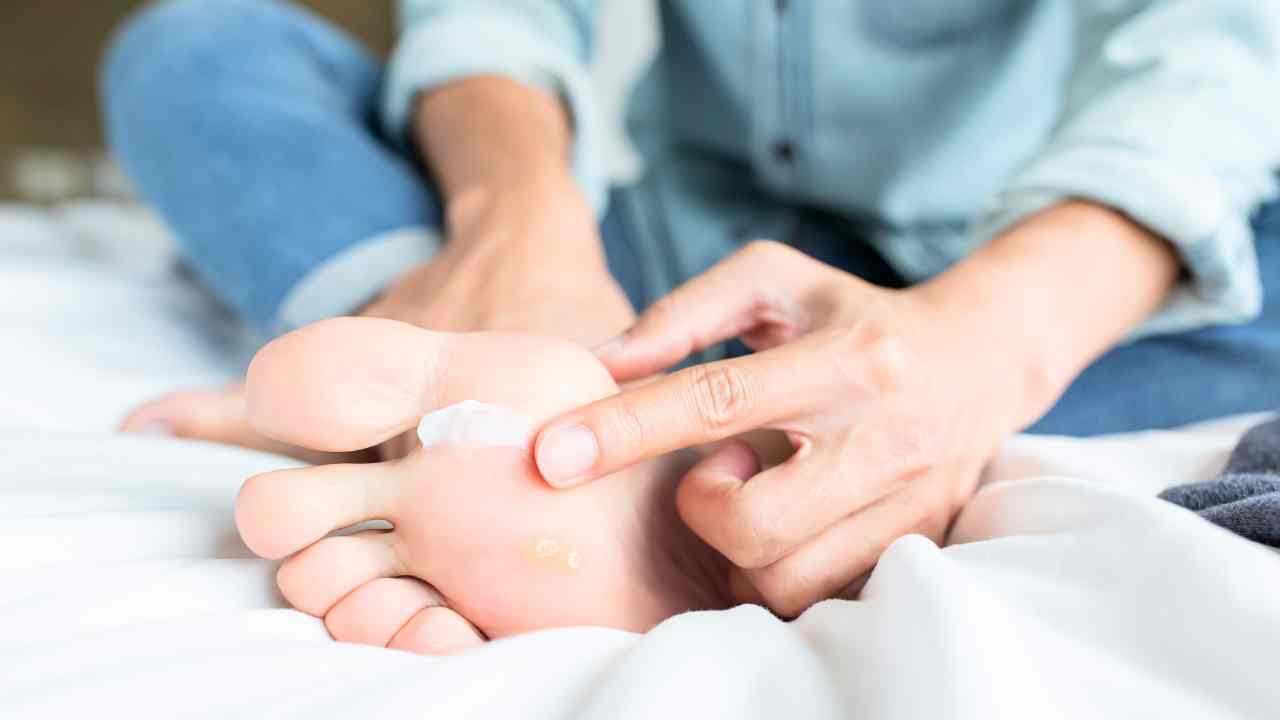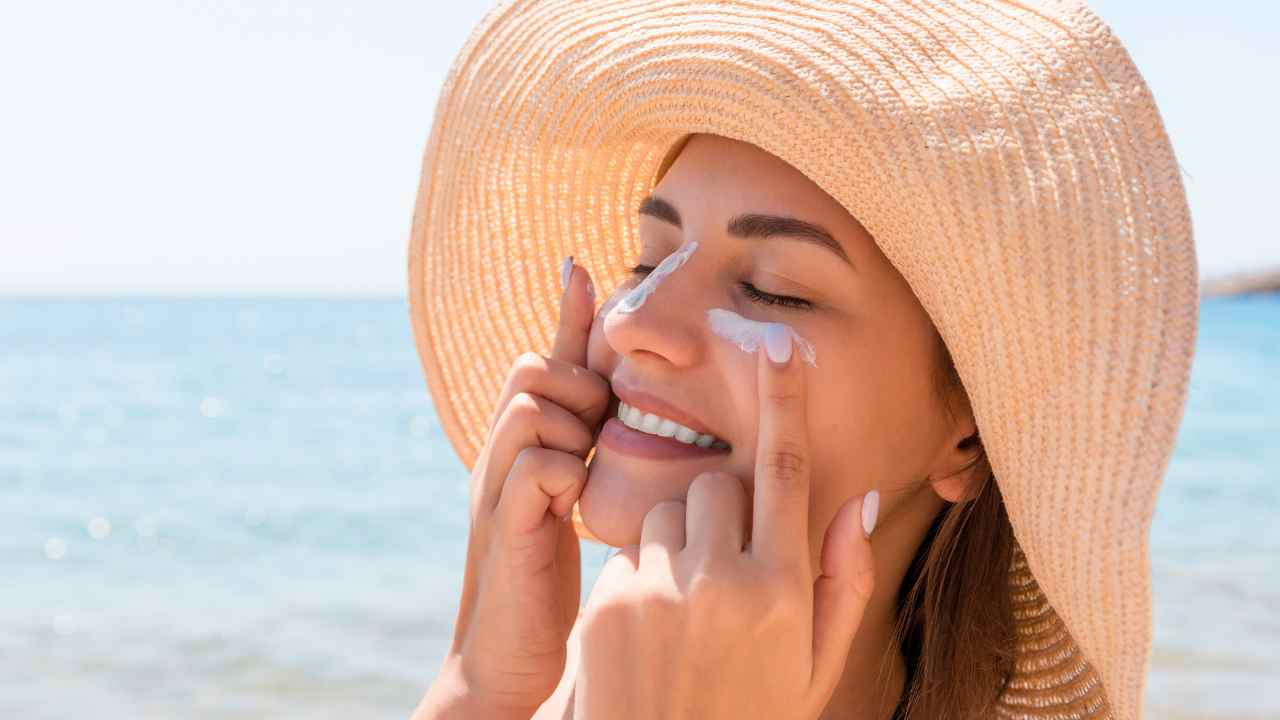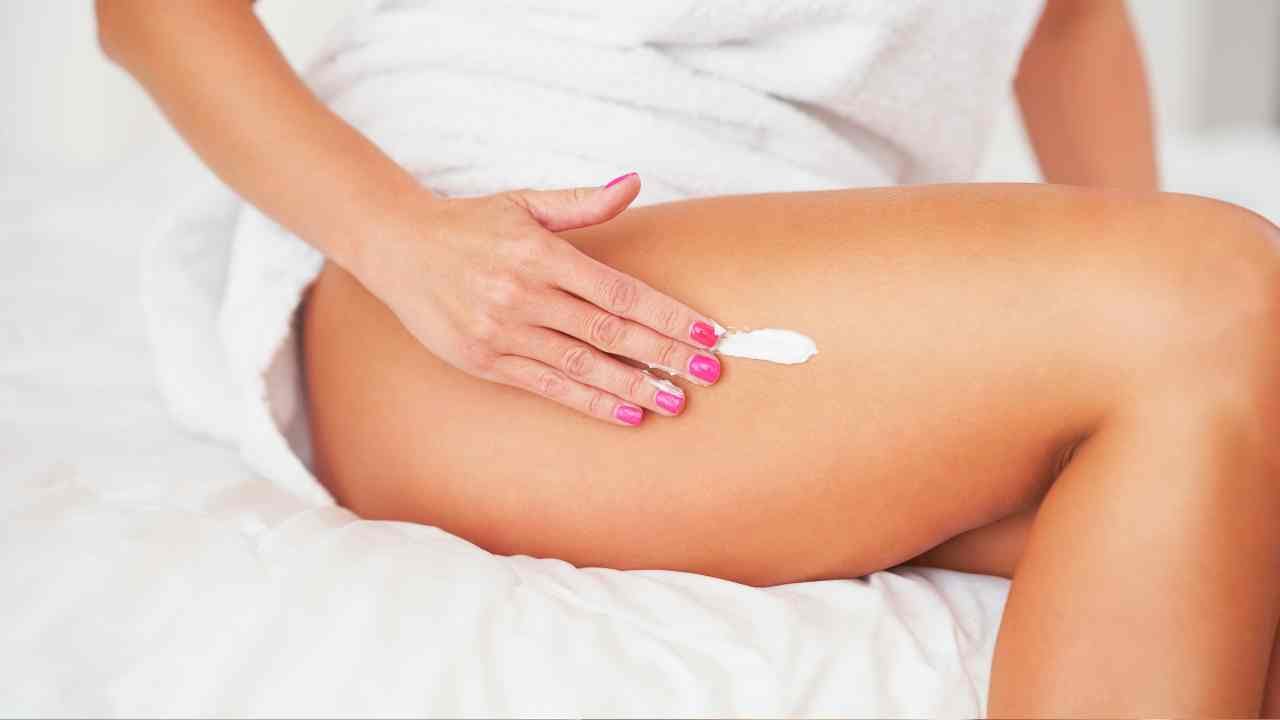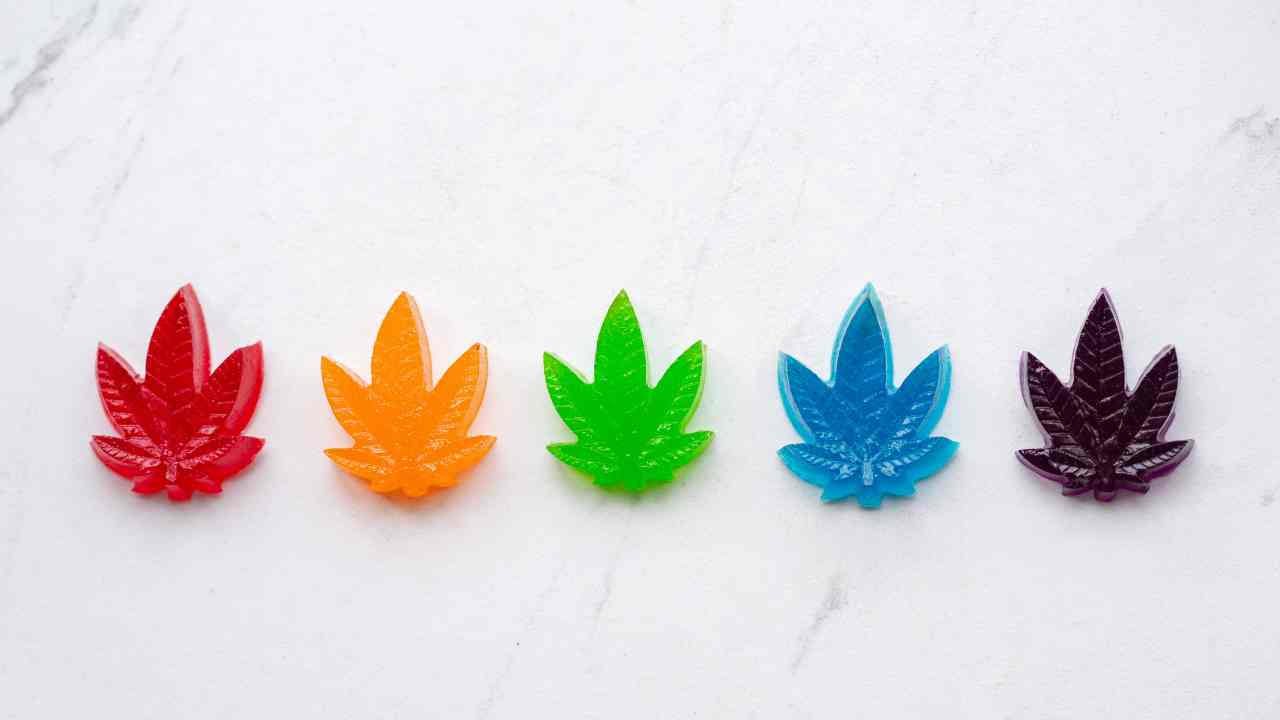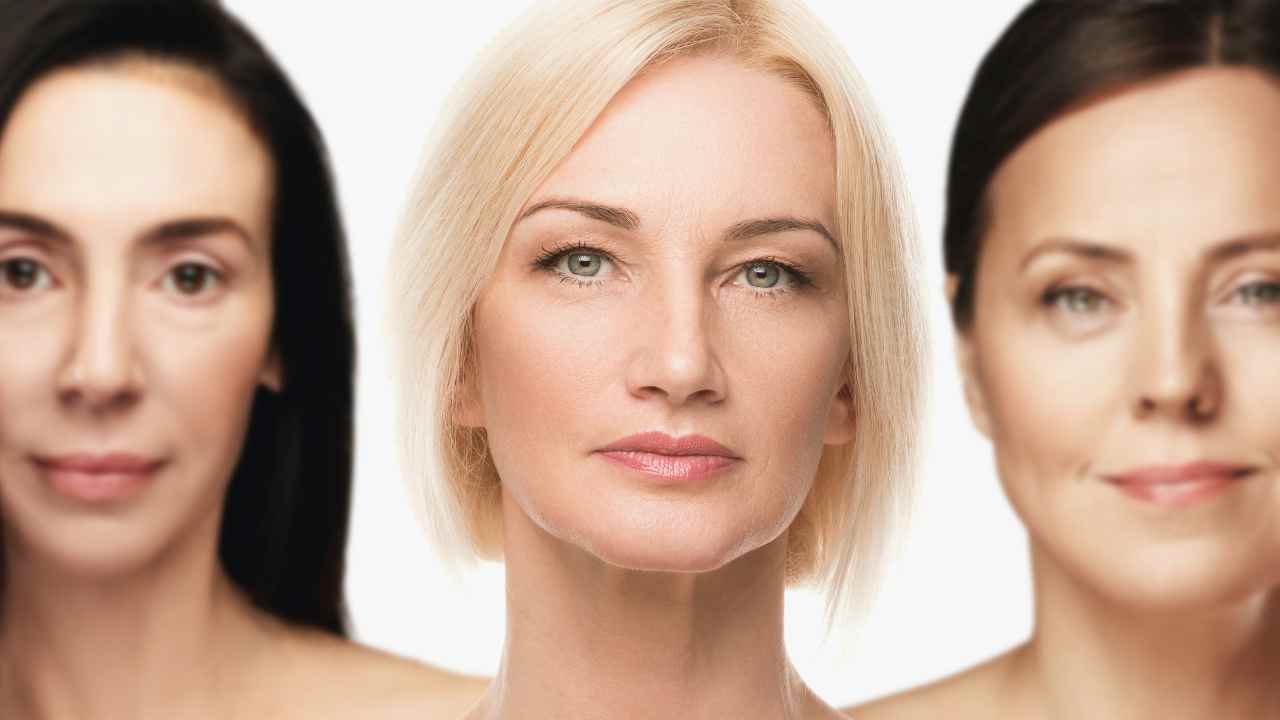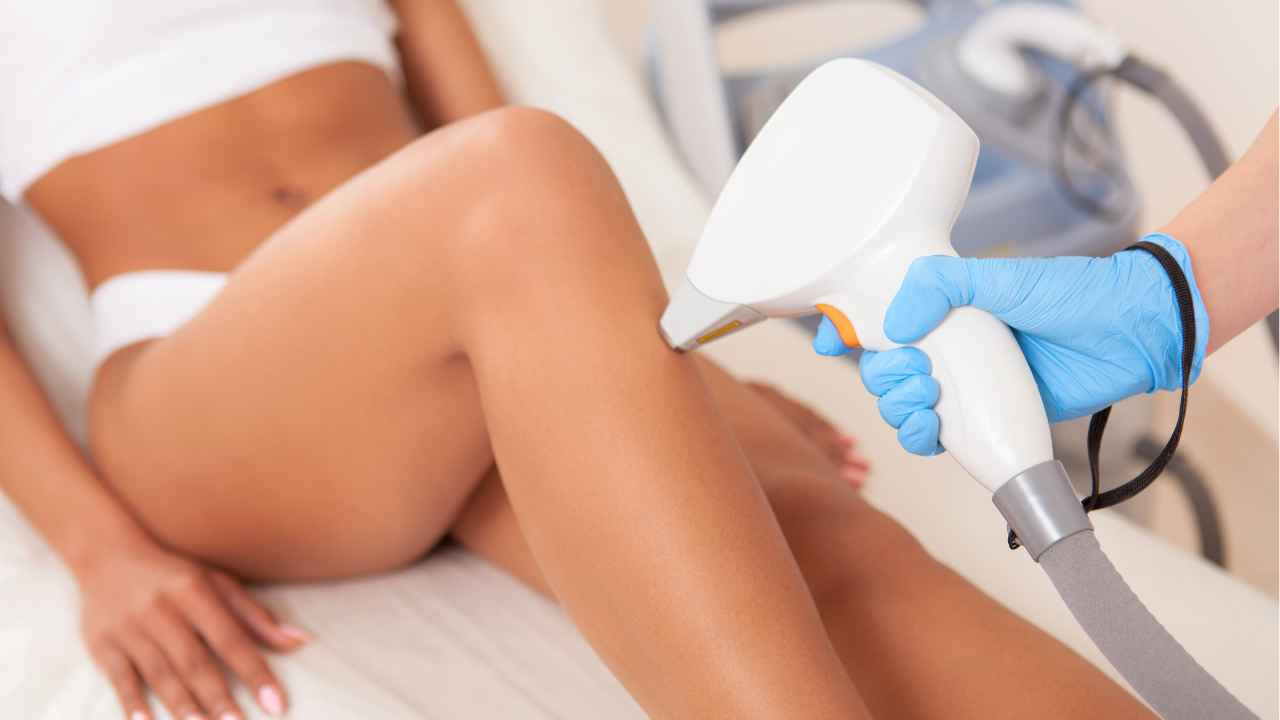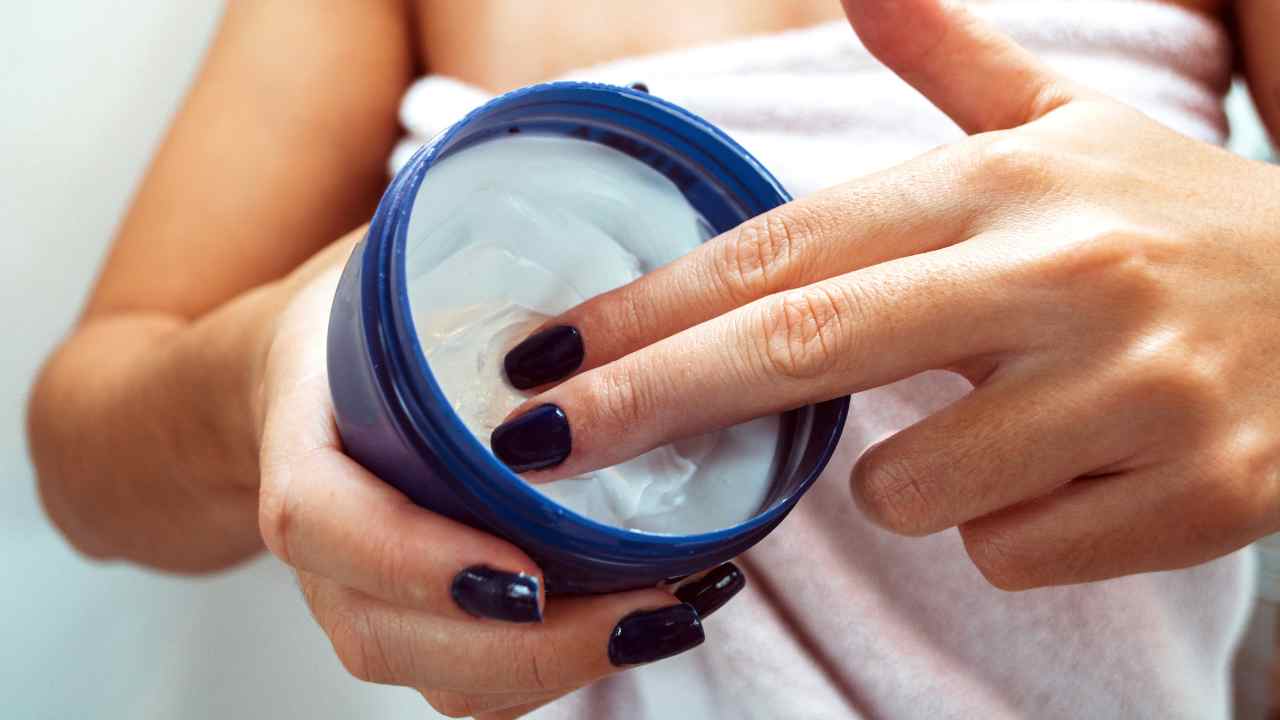
Does Shea Butter Clog Pores? How it Could Sabotage Skin!
Let's talk about one of the hottest natural ingredients in skincare right now, shea butter!
Whether you're a beginner looking into natural, plant-based skincare or a seasoned veteran who knows exactly what you want from your skincare routine, chances are that you've heard of, if not already tried, this indulgent ingredient.
But with so much buzz surrounding it, one question lingers on everyone's mind: Does shea butter clog pores? Read on to discover the answer and learn all there is to know about the effects of this super emollient staple on your skin.
Where Does Shea Butter Come From?
Shea butter has a fascinating history - it's derived from the nut of the shea tree, which grows naturally in several countries across Africa.
The shea tree is native to West and East African countries such as Benin, Burkina Faso, Cameroon, Ghana, and Nigeria. It can take up to 50 years for a single shea tree to reach its full maturity; then it's ready to produce its nuts!
The traditional method of creating pure shea butter involves collecting these nuts from the trees throughout Africa.
The nuts are then put through an extraction process that consists of boiling them in water and pounding them into a paste with mortar/pestles made out of stone or wood.
This paste is then churned either by hand with sticks or by machine which separates out the lipid-rich fraction we now know as unrefined shea butter.
Once extracted from the nut, this fatty substance is typically used for cosmetic purposes because of its moisturizing properties, but is also used medicinally for many bodily ailments such as muscle aches and joint pain.
Raw shea butter contains a combination of essential fatty acids including oleic acid, stearic acid, and linoleic acid, along with vitamins A and E. Each saturated fatty acid contributes to its nourishing properties.
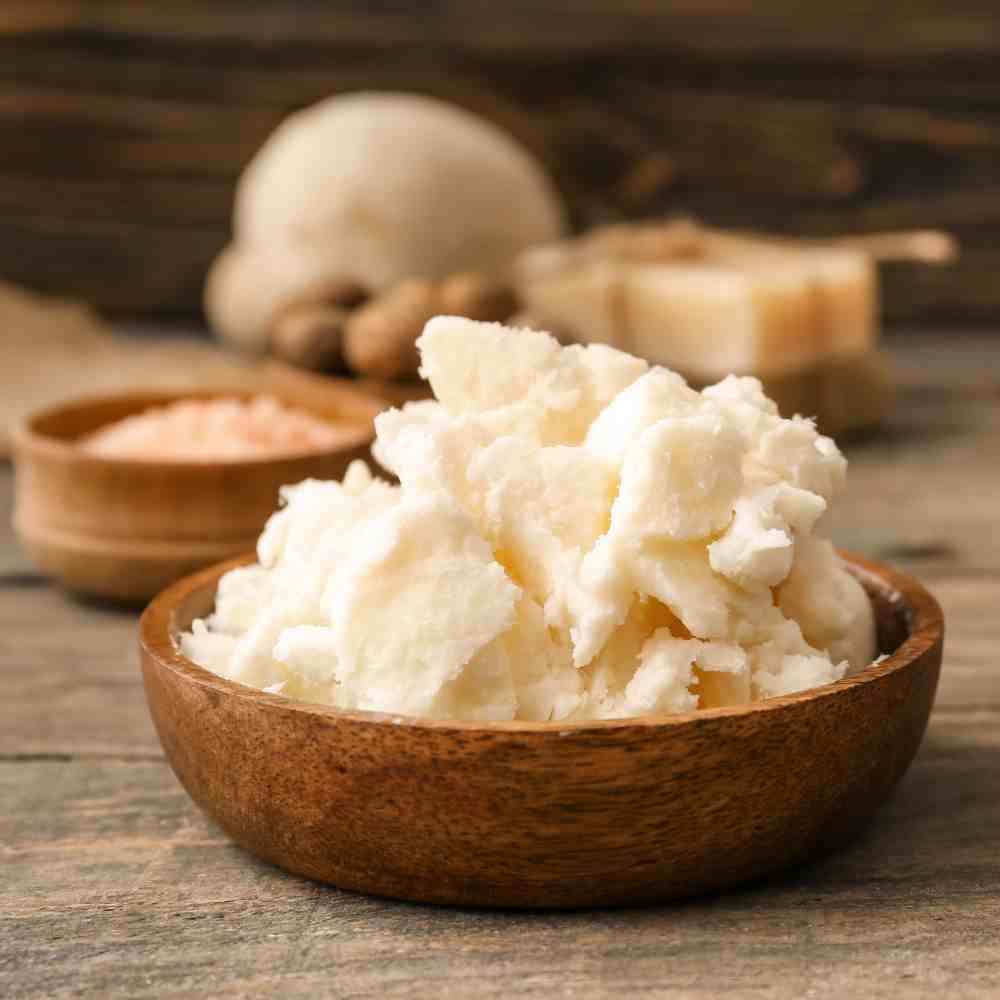
What Kind of Products Contain Shea Butter?
Shea butter has long been a favorite ingredient in many different beauty products, from lotions and moisturizers to shampoos, conditioners and hair butters.
You can find it in shaving creams, body butters, lip balms, and other cosmetics such as lipstick. It's even used as an ingredient in food, like chocolate bars and ice cream!
The reason for the popularity of shea butter skincare products is simple: it's incredibly nourishing and packed with moisturizing and healing properties that help keep skin looking healthy.
Does Shea Butter Have a Scent?
Yes, shea butter does have a scent! Depending on where it comes from and how it's processed, the smell can vary.
Generally speaking, however, shea butter has a smooth, nutty smell that is slightly reminiscent of cocoa butter. Some also say it smells like popcorn or toffee-like.
One great thing about shea butter is that its scent isn't overpowering.
It allows other aromas to come through as well, which makes it great for blending with other scented products if you want something more customizable.
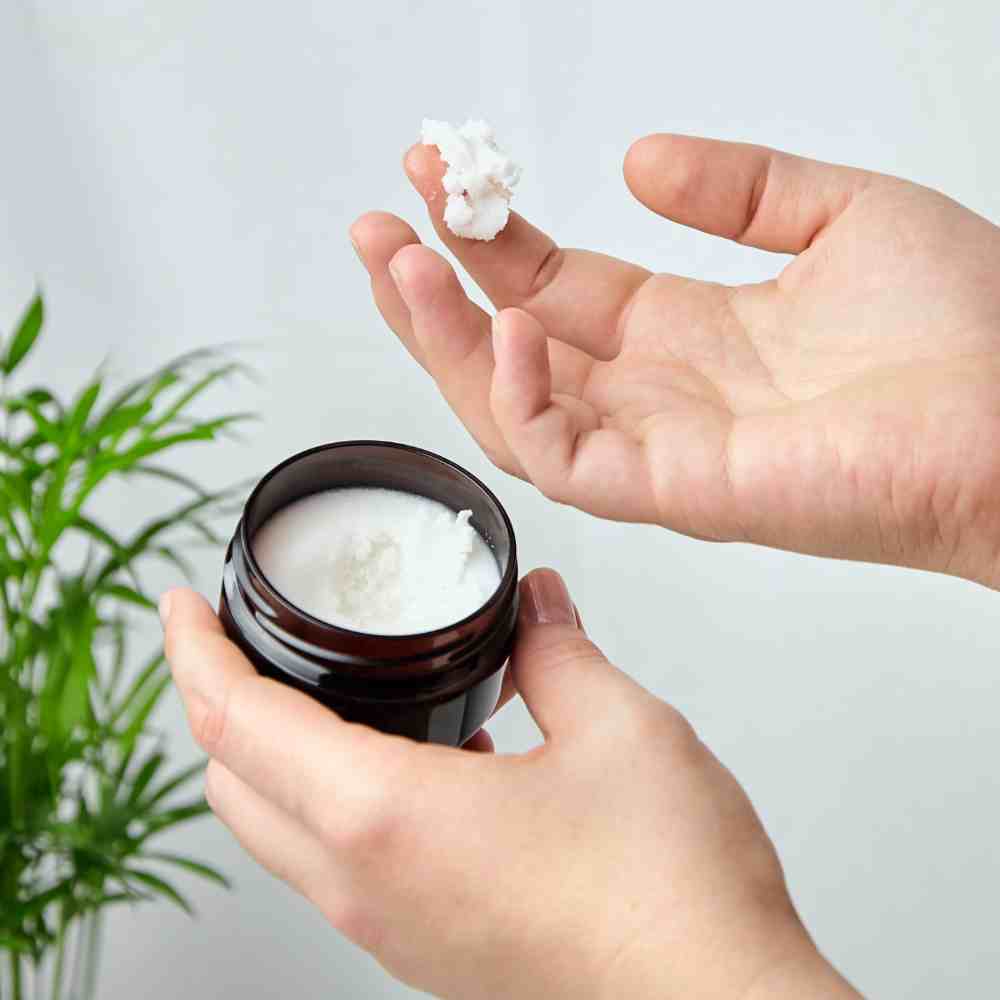
Does Shea Butter Clog Your Pores?
The concern regarding shea butter and pore clogging is largely based on its comedogenic rating. The comedogenic scale is a system used to determine the likelihood of an ingredient clogging pores and causing acne.
So is shea butter comedogenic? Actually, shea butter is classified as only slightly comedogenic, indicating that it only has the potential to clog pores in some individuals with oily skin or acne prone skin.
For most people, especially those with dry skin or normal skin, shea butter shouldn't cause pore issues at all.
However, many dermatologists still advise against putting shea butter on your face. Dr. Scott Walter, a dermatologist in Denver, Colorado, recommends using an alternative to shea butter as a facial moisturizer.
@denverskindoc If you're acne or milia prone, avoid these on the face! #LearnOnTikTok #TikTokPartner #skintok #acne #comedogenic
♬ original sound - Dr. Scott Walter MD | Derm
Factors Influencing Shea Butter & Pore Clogging
Shea butter is not likely to clog your pores. However, there are various factors that influence the likelihood of shea butter could actually cause a breakout. Here are a few of those factors to keep in mind.
Your Skin Type & Texture
Individuals with oily or acne-prone skin are generally more prone to experiencing clogged pores and acne breakouts.
Shea butter's rich consistency and occlusive properties could possibly trap excess sebum, dead skin cells, and other impurities, potentially leading to pore blockage.
However, those with normal to dry skin may find that shea butter provides valuable moisture without causing clogged pores.
Your Skincare Routine
Are you taking care of your skin? This includes using a good pore cleanser and toner before applying your moisturizer.
A healthy skincare routine also includes drinking plenty of water, getting enough sleep and avoiding bad habits such as touching your face with dirty hands.
If you do get a breakout, treat it right away with a spot treatment product or a face mask designed especially for acne.
Shea Butter Purity & Quality
The purity and quality of shea butter can significantly impact its comedogenic properties.
Unrefined, raw, and organic shea butter is often preferred as it retains its natural beneficial properties and is less likely to contain additives or chemicals that could potentially clog pores.
Opting for high-quality shea butter from reputable brands is crucial to ensure the best possible results for your skin.
Moisturizer Application Habits
How you apply shea butter to your skin can also affect its potential to clog pores. Using excessive amounts or applying it too frequently may increase the likelihood of pore blockage.
It is advisable to use shea butter sparingly, focusing on areas that require additional moisture, rather than applying it all over the face.
Your Skin Sensitivity
Individuals with sensitive skin may be more prone to adverse reactions from shea butter, including clogged pores and breakouts.
Performing a patch test on a small area of skin before applying shea butter to the face is recommended to check for any potential irritation or pore-clogging effects.
The Benefits of Shea Butter for the Skin
While pore clogging is a concern for a few individuals, shea butter seems like a great moisturizer considering the benefits shea butter offers for your skin. Here are just a few of the benefits it offers.
Intense Moisture
Shea butter is highly effective in moisturizing and nourishing the skin. Its emollient properties help to lock in moisture, preventing dehydration and dryness.
Regular use of shea butter can help improve skin texture, promote softness, and restore a healthy, radiant appearance.
Soothing & Calming
Shea butter contains anti-inflammatory compounds, such as cinnamic acid and lupeol, which can help soothe and calm irritated skin. It is often used to alleviate symptoms associated with conditions like eczema, psoriasis, and dermatitis.
Antioxidant Protection
The presence of vitamins A and E in shea butter provides antioxidant benefits for the skin. These antioxidants help protect against free radicals, which are harmful molecules that contribute to premature aging and damage to the skin cells.
Promotes Skin Elasticity
Shea butter's high concentration of fatty acids helps support the skin's natural collagen production, enhancing elasticity and firmness.
Regular use of shea butter can help improve the appearance of fine lines and wrinkles, promoting a more youthful complexion.
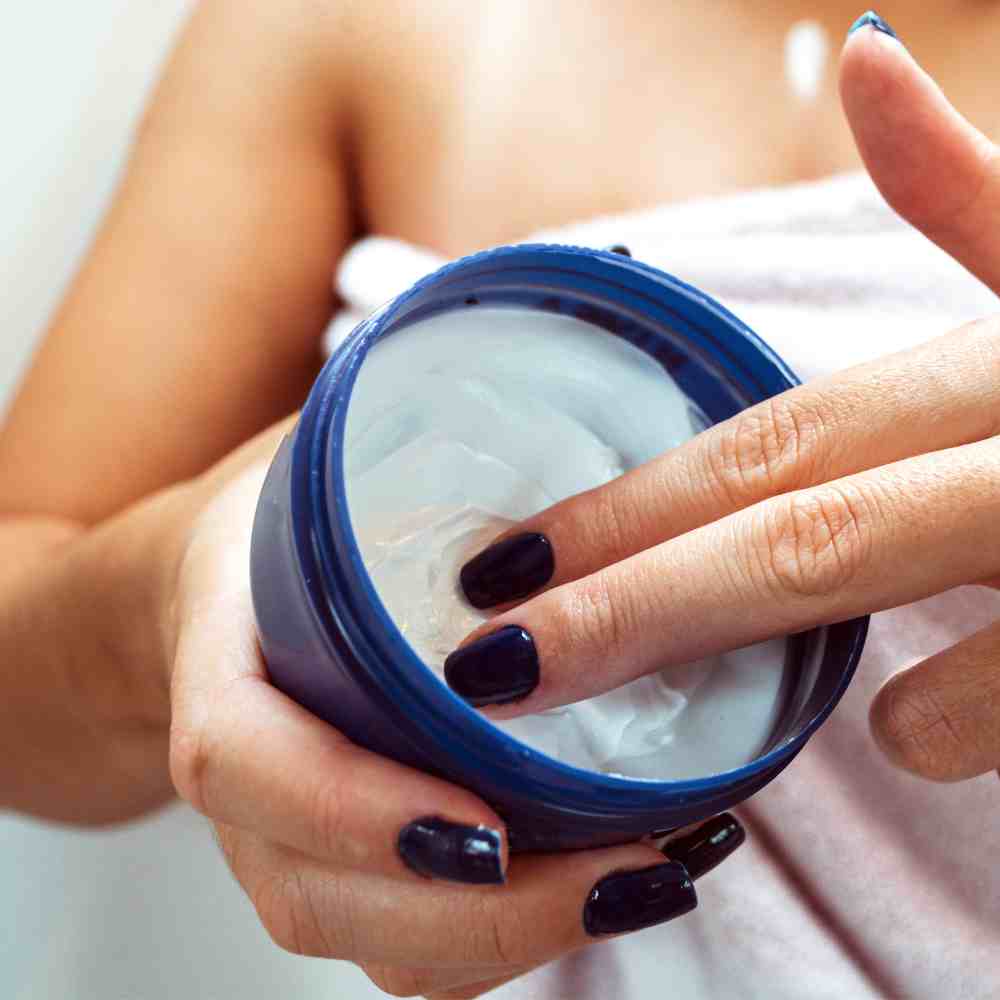
Adding Shea Butter to Your Skincare Routine
Are you hooked by the potential advantages of shea butter and believe it will work well in your beauty routine? If so, give it a go!
But first, here are some pro pointers for using shea butter and fitting into your skincare regime. What better time to incorporate this delicious natural ingredient?
Ready for an adventure to find the perfect balance of silky softness? Then, let's go!
Choose a High-Quality Shea Butter
Why not opt for unrefined, raw, and organic shea butter? It'll ensure what you're receiving is pure, maximizing all of the fabulous benefits this luxurious, magical plant has to offer.
If you can't find sustainably sourced and ethically produced shea butter near by, look for reputable online brands.
Different companies have their own sourcing methods and unique production processes — identify the one that prioritize both quality and sustainability.
Customize Your Application
Tailor your use of shea butter based on your skin type and needs. A little goes a long way, so only use a small amount and apply it sparingly to areas that need extra love and pampering, such as dry patches or rough areas.
Over time feel free to readjust the frequency of application to see what works for your unique skin needs.
Combine it with Other Skincare Ingredients
Consider pairing shea butter with other beneficial skincare ingredients to enhance its effects.
For example, you can mix a small amount of shea butter with a lightweight moisturizer or blend it with oils that have a non-comedogenic profile, such as jojoba oil or argan oil.
Monitor Your Skin's Response
Observe how your skin reacts to shea butter. If you notice any signs of pore clogging or breakouts, discontinue use or reduce the frequency of application.
Alternatively, if your skin tolerates shea butter well and benefits from its moisturizing properties, continue incorporating it into your routine.
Say Goodbye to Breakouts
While shea butter is classified as mildly comedogenic, its potential to clog pores and cause breakouts varies depending on individual factors such as skin type, purity, application technique, and sensitivity.
For individuals with normal to dry skin, shea butter can provide intense moisture, soothe irritation, and enhance overall skin health.
However, those with oily or acne-prone skin may want to exercise caution and monitor their skin's response.
As with any skincare ingredient, understanding your skin's unique needs and preferences is crucial.
By selecting high-quality shea butter, using it sparingly and customizing your application, you can harness its nourishing properties while minimizing the risk of pore clogging.
Embrace the potential this natural substance and let your skin reap the shea butter benefits!



